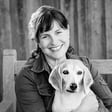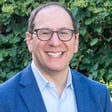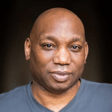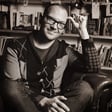
Episode 481: Nieman Storyboard’s Mark Armstrong Believes in the Beginners’ Mindset
"Listening to podcasts, it's like, how do I start making them? That's been my approach, essentially try and take that beginner mindset into anything and try to teach myself new skills," says Mark Armstrong.
Who do we have today? It’s Mark Armstrong! He is a producer, a writer, a singer, working at the intersection of storytelling and digital media. Does that make him intersectional? Hell, yes.
Mark is the founder of Longreads, the hashtag phenomenon back when social media was cool. Now he’s the editor of the Nieman Storyboard, which is where all us narrative journalists go to get jealous of one another. He hosts the Nieman Storyboard podcast and he’s also the co-founder of Ursa Story Company that he created with Dawnie Walton and Deesha Philyaw. Intersectional, indeed.
So Mark is a pretty rad guy, great guy. He was one of the five people in the audience for event in Seattle. I tell you, five people in a room made for 100 is … upsetting, but he was so generous to come by. We got our picture taken together. See that in the show notes
In this episode we talk about:
- Beginner’s mindset
- Trying new things just to fuck around
- The importance of a host’s curation
- Why he started the Nieman Storyboard Podcast
- And the myriad ways we as journalists can try to make a buck
It’s some nice dialogue here. A real conversation. You can learn more about Mark at markarms.com and follow him on Instagram @markarms.
Newsletter: Rage Against the Algorithm
Show notes: brendanomeara.com



















